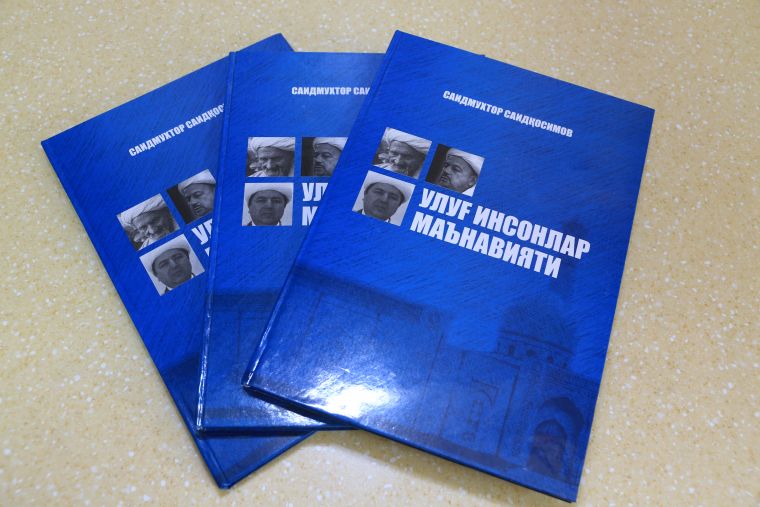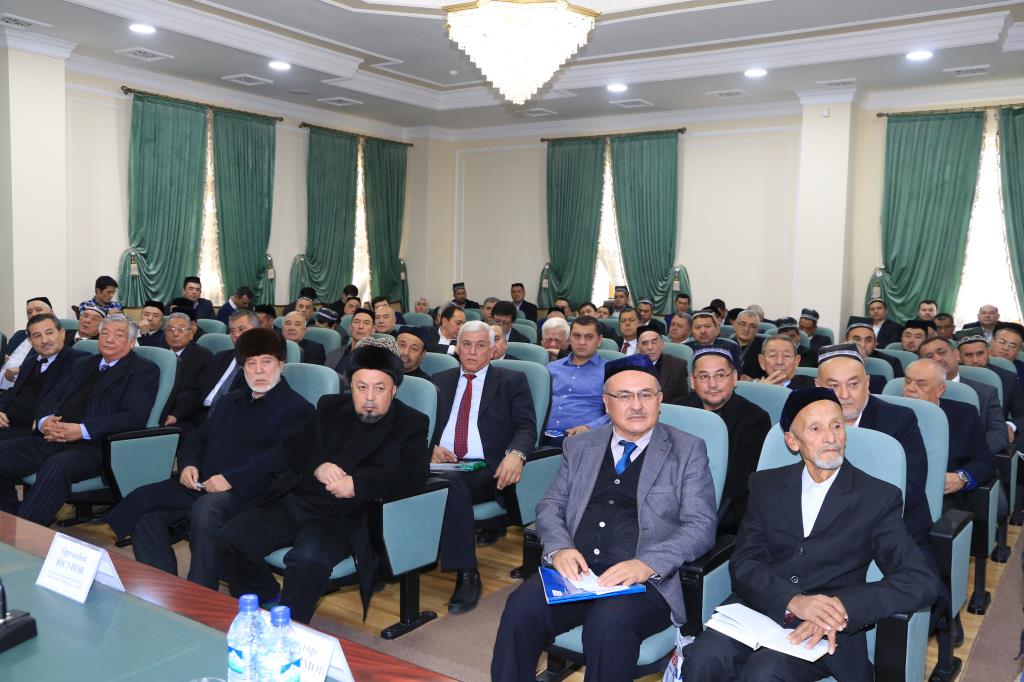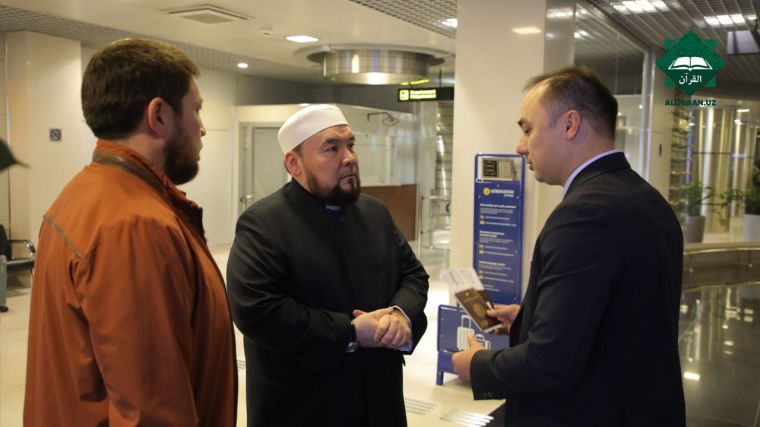Tashkent city



On December 18, 2017 Muslim Board of Uzbekistan hosted an event dedicated to the presentation of Professor Saidmukhtor Saidkasimov’s book under the title “The enlightenment of great pople” devoted to the 80th anniversary of the scholar of oriental studies and diplomat Shamsiddin Bobokhonov. The Academic of the Academy of Sciences of Uzbekistan, Doctor of Philological Studies, Professor Ne’matulloh Ibrohimov, Doctor of Economic Studies, Professor Nurislom Tuxliyev and The Chairman of Muslim Board of Uzbekistan Usmankhan Alimov took part in the event with their presentations. Video script devoted to the autobiography of Shamsiddin Bobokhonov was played on the screen.
Heads and delegates from the Committee on religious affairs under the Cabinet Ministers of Uzbekistan, Muslim Board of Uzbekistan, Islamic Civilization Center of Uzbekistan, scholars of oriental studies, imams and students from Tashkent Islamic Institute and Tashkent Islamic University also participated in the event.
During the meeting Muftiy Usmonkhon Alimov noted that Shamsiddin Bobokhonov’s leadership of Muslim Board had been in 1982-1989, the period of historical time when atheists rein was full of difficulties.
Muftiy made the comparison of that time with the following hadith from our prophet Muhammad sollalohu alayhi wasallam: “There would be times for my ummah when they would keep patience in religious practices like the one who holds fire in his arms”.
It was underlined that the lives of these kinds of people are worth to take as an example. Talking about scholars Imam A’zam said the following: “It is better for me to sit with the circle of scholars rather than reading books, because stories talk about the upbringing of people”
Press service,
Muslim Board of Uzbekistan



At the initiative of the Chairman of the Muslim Board of Uzbekistan, Mufti Shaykh Nuriddin Khaliqnazar, it has become a tradition to send Uzbek scholars abroad to meet with compatriots, listen to their suggestions and needs, and strengthen spiritual and educational ties.
As part of this initiative, the Head of the “Qur’an and Tajweed Teaching Department,” Shaykh Alijon Qori Fayzullah Mahdum, has departed for an official visit to the United States.
During the trip, he is scheduled to help enhance the knowledge of Qur’an recitation and tajweed among our compatriots living in the U.S. and to take part in the final stage of the ongoing Qur’an competition held there.
May Allah Almighty make this journey beneficial, fruitful, and safe.
Press Service of the Muslim Board of Uzbekistan

